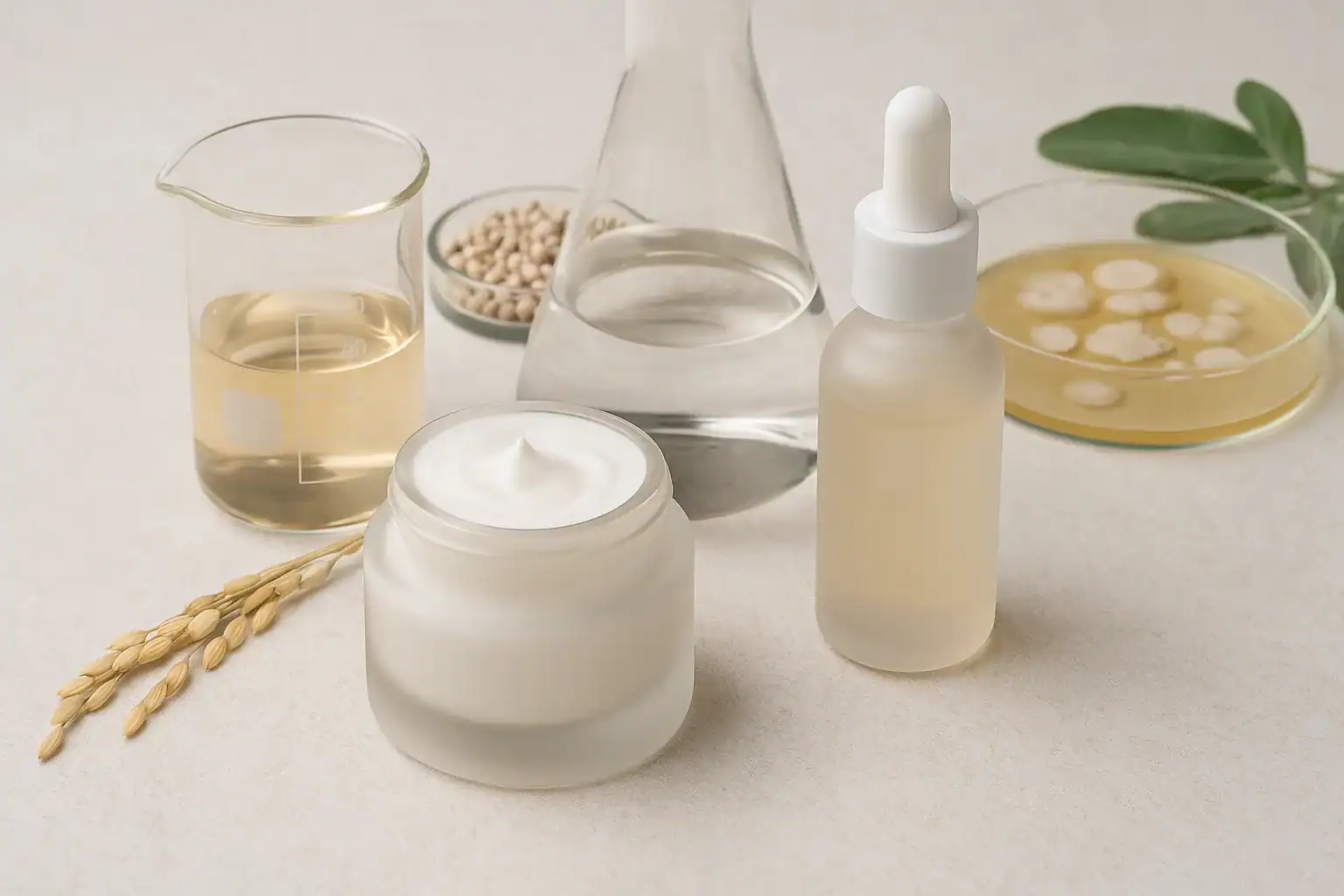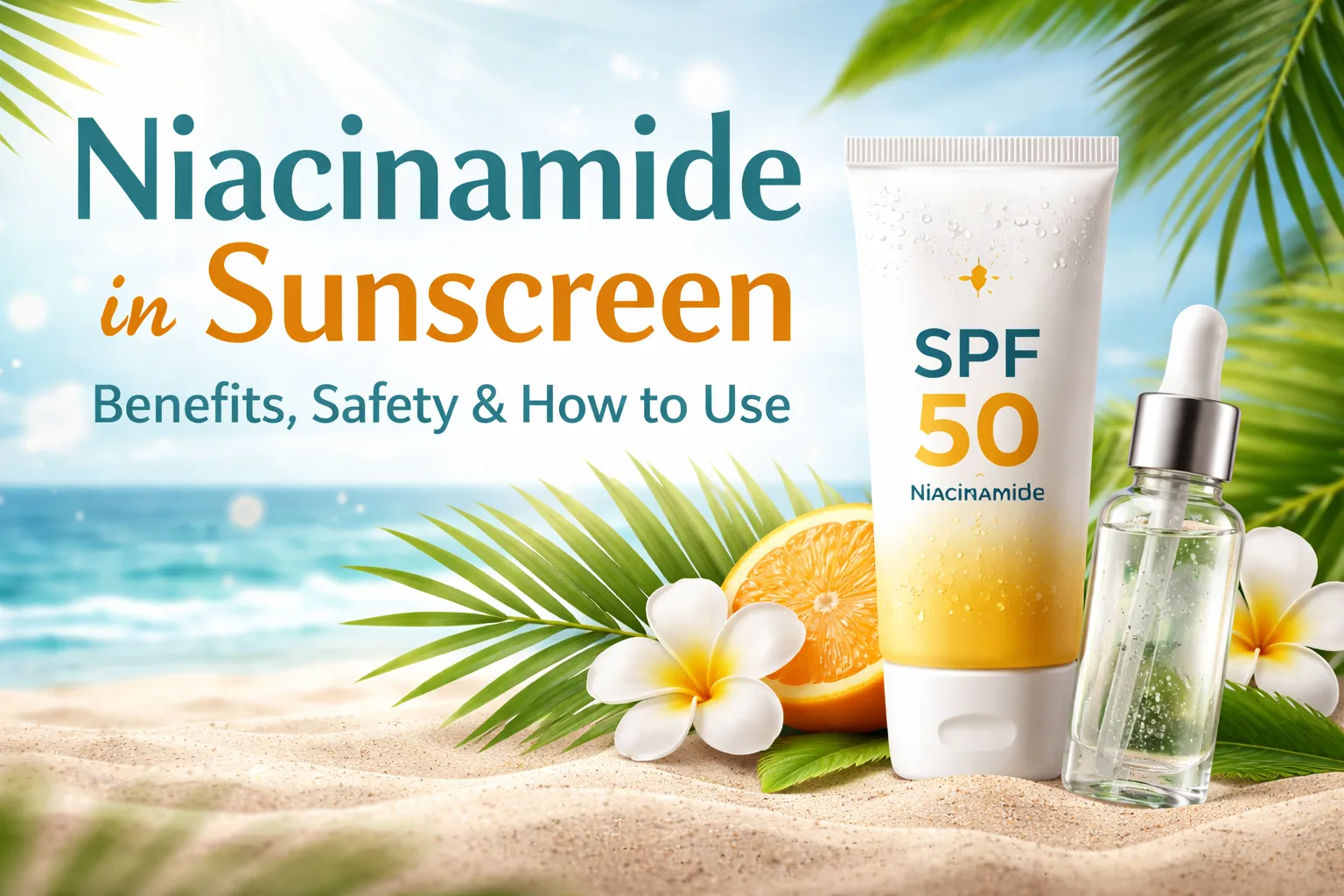In the ever-evolving world of luxury skincare, one ingredient category is gaining serious traction: bioferments. These fermented botanical or synthetic ingredients, long embraced by K-beauty, are now global players in formulations promising gentler, more potent results. But this is more than just a trend—bioferments in skincare science reveals why fermentation could be a revolution in skin health.
Scientific studies show that fermented ingredients enhance absorption, boost antioxidant activity, and improve skin tolerance. For skincare-conscious afficonados, who seek both science and results, this marks a powerful shift.
In this Article
- What Are Bioferments in Skincare?
- The Bioferments Skincare Science: How It Really Works
- Key Bioferment Ingredients to Know
- Are Bioferments Safe for all Skin Types?
- DIY or Store-Bought? Exploring the Options
- The Future of Bioferments in Skincare
- Takeaway: Why You Should Care About Bioferments Skincare Science
- FAQs on Bioferments Skincare Science
- Keep The Vibe Going
What Are Bioferments in Skincare?
Bioferments are skincare ingredients that have undergone a controlled fermentation process—often using bacteria or yeast—to break down large molecular compounds into smaller, more bioavailable forms.
Why Fermentation?
- Enhances nutrient bioavailability: Fermentation converts large molecules into smaller ones that can penetrate the skin more efficiently. [1]
- Reduces irritation potential: Raw ingredients like rice, soy, or ginseng can trigger irritation. Fermentation neutralizes many of these reactive compounds, making them gentler. [2]
- Supports the skin microbiome: Fermented extracts often contain postbiotics and prebiotics that nourish your skin’s natural bacterial balance. [3]
Related Read: DIY Probiotic Face Mask Using Yogurt and Honey
The Bioferments Skincare Science: How It Really Works
The Microbial Magic Behind Bioferments
Fermentation uses beneficial microbes like Saccharomyces cerevisiae or Lactobacillus to unlock the full potential of ingredients. This bioconversion process releases enzymes, amino acids, peptides, vitamins, and antioxidants.
Boosted Skin Absorption
Smaller molecules from fermented extracts can travel deeper into the epidermis, delivering hydration, nutrients, and antioxidants more effectively. [4]
Enhanced Antioxidant Properties
Studies show that fermentation increases the antioxidant activity of ingredients like rice water or soy. This supports anti-aging, helps reduce oxidative stress, and keeps the skin glowing. [5]
Skin Microbiome Support
Fermented skincare products often contain microbial metabolites that promote a healthy skin flora, essential for reducing acne, inflammation, and dullness. [6]
Key Bioferment Ingredients to Know
Common Fermented Ingredients in Luxury Skincare
Luxury skincare brands are increasingly incorporating the following fermented actives:
1. Galactomyces Ferment Filtrate (GFF)
Originally discovered in sake breweries, GFF is rich in vitamins, enzymes, and amino acids that brighten and hydrate skin. It’s also been studied for sebum control and pore refinement. [7]
Try: Cosrx Galactomyces 95 Tone Balancing Essence
2. Lactobacillus Ferment
A gentle probiotic ferment that improves skin resilience, reduces inflammation, and enhances moisture retention. [8]
Try: Dear, Klairs Fundamental Watery Oil Drop
3. Saccharomyces Ferment Filtrate
Boosts cellular turnover and radiance while promoting skin clarity without exfoliation. [9]
Try: Missha Time Revolution The First Essence 5X
Also Read: Are Facial Essences the Missing Step in Your Routine?
Are Bioferments Safe for all Skin Types?
Melanin-rich skin, which often deals with pigmentation, humidity-induced acne, and pollution exposure, can greatly benefit from bioferments. Their gentle efficacy and skin barrier support make them ideal for all skin types, especially sensitive or combination skin. [10]
DIY or Store-Bought? Exploring the Options
DIY with Caution
DIY rice water toners and fermented teas are gaining popularity, but without lab-grade sterilization, you risk contamination with harmful microbes. Always use caution.
Learn More: How to Safely Make a DIY Fermented Toner at Home
Store-Bought for Stability
Formulated products are tested for microbial stability, pH balance, and ingredient efficacy—offering consistency and safety for daily use.
The Future of Bioferments in Skincare
From biotech brands to Ayurvedic hybrids, fermentation is becoming a major R&D area in luxury skincare. As sustainability, clean beauty, and microbiome health continue to rise in consumer demand, bioferments are poised to become a staple in skincare routines. [11]
Takeaway: Why You Should Care About Bioferments Skincare Science
The bioferments skincare science isn’t just marketing fluff—it’s a proven way to elevate your routine with enhanced efficacy, better absorption, and long-term skin health support. For ingredient-savvy skincare lovers looking to blend modern science with skin kindness, bioferments offer a smart, science-backed solution.
Explore More:
- Retinol Burnout? Here’s How to Reset Your Skin Barrier in 7 Days
- Is the ‘Glass Skin’ Trend Realistic? A Closer Look at the Korean Beauty Ideal
FAQs on Bioferments Skincare Science
Bioferments are ingredients that have been fermented using beneficial microbes. This makes them more potent and easier for the skin to absorb.
Yes. Fermentation often reduces the irritation potential of raw ingredients, making them ideal for sensitive or reactive skin types.
Bioferments hydrate, brighten, soothe inflammation, and support a healthy skin microbiome—all of which are crucial for skin exposed to sun, humidity, and pollution.
Probiotics are live microbes; bioferments are extracts or byproducts with similar skin-enhancing effects but often without live cultures.
Want the latest scoop, exclusive deals, and skincare secrets? Follow us on WhatsApp and never miss a glow-up moment!




